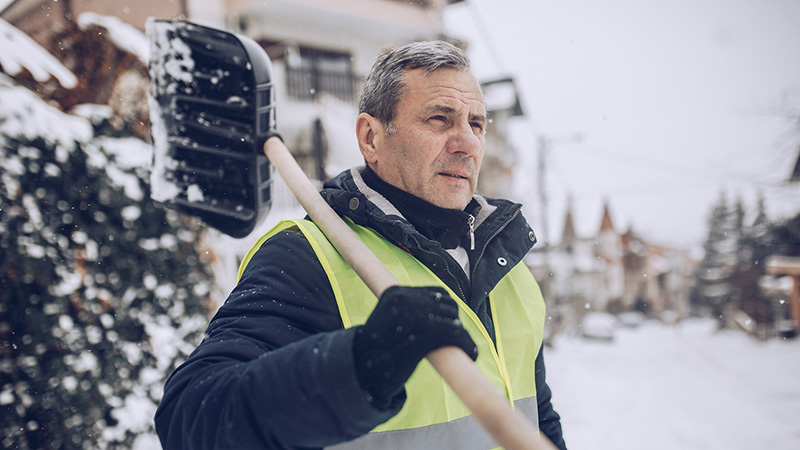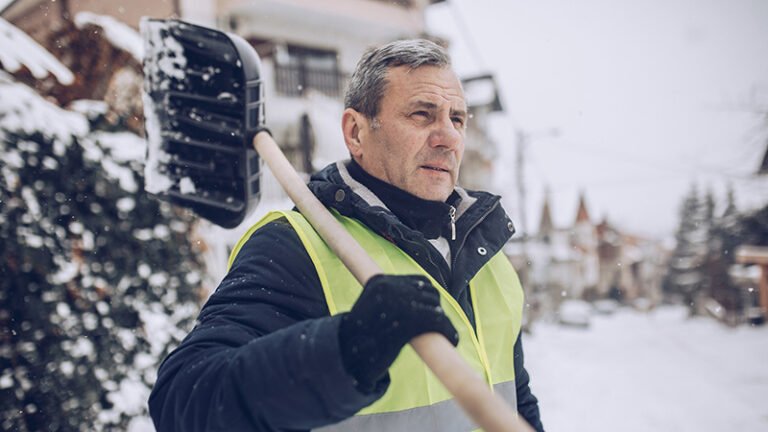
During the winter, temperatures drop and some people experience ice and snow. For most people, shoveling snow does not pose any health problems. Still, it’s important to know how cold weather affects your heart, especially if you have cardiovascular disease.
Some people who are outdoors in cold weather may need to avoid sudden exertion, such as lifting a heavy shovel full of snow. Even walking through heavy, wet snow or snowdrifts can put a strain on the heart for some people.
How does cold weather affect the heart?
Many people are not used to the physical stress of strenuous outdoor activities and are unaware of the potential dangers of being outdoors in cold weather. Winter sports enthusiasts can suffer from accidental hypothermia if they do not take certain precautions.
Hypothermia means your body temperature drops below 35 degrees Celsius or about 95 degrees Fahrenheit. This occurs when your body is unable to produce enough energy to keep your internal temperature warm enough. it could kill you. Symptoms include lack of coordination, mental confusion, slowed reactions, tremors, and drowsiness.
Children and the elderly are at particular risk because they may have limited communication skills or impaired motor skills. Older people have less subcutaneous fat and a reduced ability to sense temperature, so they can suffer from hypothermia without knowing they are at risk.
People with coronary heart disease often experience angina (chest pain or discomfort) in cold weather.
In addition to low temperatures, strong winds, snow, and rain can also rob you of body heat. Wind is especially dangerous because it removes a layer of heated air from around your body. If it’s 30 degrees Fahrenheit and the wind is blowing 30 miles per hour, the cooling effect is equivalent to 15 degrees Fahrenheit. Similarly, when it’s humid, your body loses heat faster than when it’s dry and at the same temperature.
Wear layers of clothing to stay warm. This traps air between the layers and forms a protective insulator. Also, please wear a hat or scarf. Heat can be lost through the head. And ears are especially susceptible to frostbite. Your hands and feet can easily lose heat, so try to keep them warm.
Below is a list of practical tips to make snow removal safer.
- Take a break. Take frequent breaks while shoveling snow to avoid putting too much stress on your heart. Pay attention to how your body feels during your breaks.
- Learn the warning signs of a heart attack and listen to your bodyHowever, keep this in mind. Even if you are not sure whether you are having a heart attack, get tested. Minutes count! Quick action can save lives. You can probably save your own life too. Don’t wait, call 911.
- Do not consume alcohol before or after shoveling snow. Alcohol increases a person’s sense of warmth and can cause them to underestimate the extra strain on their body in the cold.
- Please consult a medical professional If you have medical concerns or questions about exercising in cold weather, especially if it significantly exceeds your normal physical activity level.
- Be aware of the risk of hypothermia. To prevent hypothermia, wear layers of warm clothing that trap air between layers to form protective insulation. Wear a hat, as much of your body heat can be lost through your head.
- Learn CPR. Effective bystander CPR immediately after sudden cardiac arrest doubles or triples the victim’s chances of survival. Her hands-only CPR makes saving lives easier than ever. If an adult suddenly collapses, call 911 and begin pressing firmly and quickly in the middle of the victim’s chest until help arrives.


